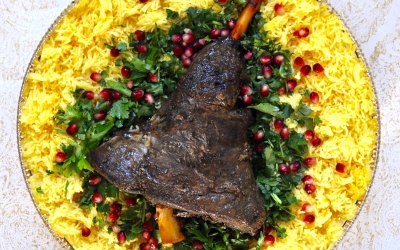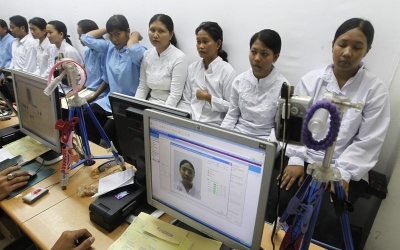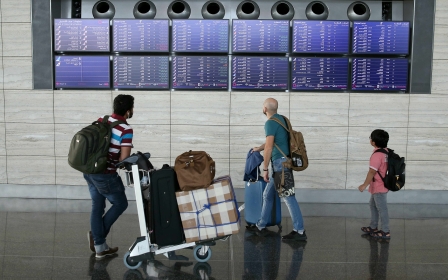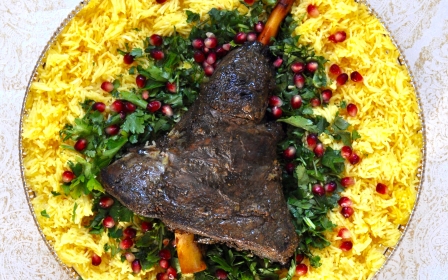Poorest workers bear brunt as Qatar cuts Australian lamb subsidy
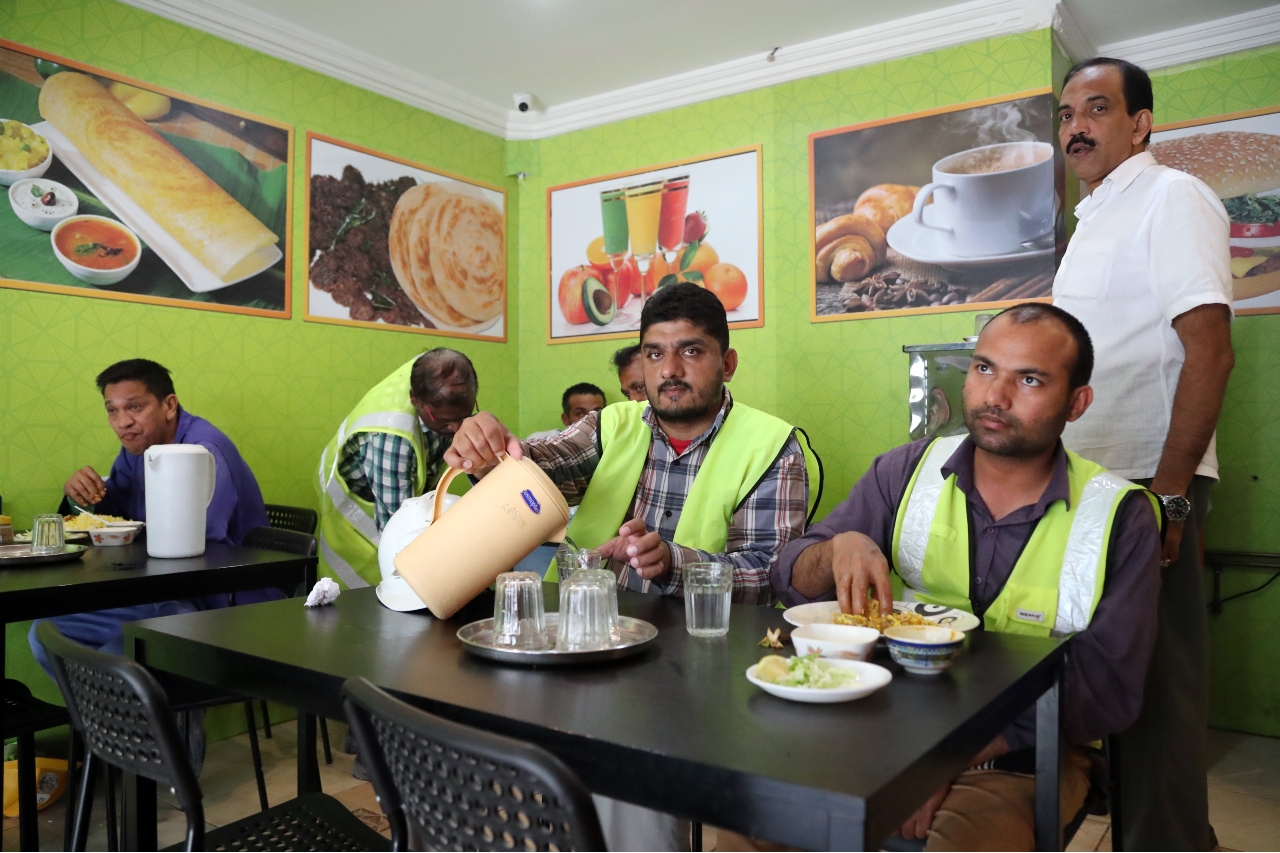
For poorly paid expatriate workers already battling the Covid-19 pandemic and its effects on their jobs, Qatar's surprise New Year subsidy cut against the Australian lamb industry has come as an additional blow.
Many restaurants that offered mutton dishes to the country's large workforce for a price as low as eight Qatari riyals ($2.20) have stopped serving them, while others have reluctantly increased prices but fear losing customers.
The subsidy, paid to importers of Australian lamb in Qatar, had been in place since 2015 as part of a trade valued at $300m.
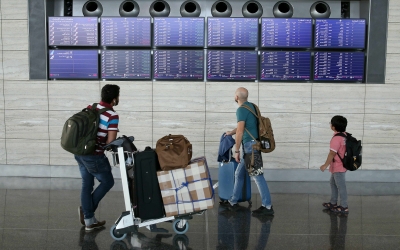
Scheduled to end in 2023, Doha suddenly decided to end the deal on 31 December 2020.
The move followed Australian protests over an incident in which 18 women, including 13 Australians, were subjected to an invasive medical search after the discovery of a newborn baby abandoned in Doha's Hamad International Airport terminal.
Australian Foreign Affairs Minister Marise Payne dubbed the incident in October as a "grossly disturbing, offensive, concerning set of events".
In a country where the monthly minimum wage is set at just 1,000 Qatari riyals ($274), the subsequent change in mutton prices, as the meat is referred to in Qatar, has had a significant impact.
With the subsidy, a kilogram of Australian mutton, which is imported alive and then slaughtered, used to cost less than $4.67.
This was much lower than the price of mutton from other sources, including India or Pakistan at $9.62-$10.17 or from Syria and other Arab countries, up to $16.50.
Now, with the subsidy gone, Australian mutton costs $10.17, more than double the previous price.
Dishes cancelled
The Gulf Garden Restaurant in Doha's Abu Hamour area has already been forced to stop serving many of its mutton dishes.
While the restaurant mostly caters to South Asian workers, Qataris and other Arabs also frequent the establishment.
Speaking to Middle East Eye on Tuesday, restaurant manager Muhammedali Kalariyullathil ran off a long list of dishes the restaurant had stopped serving.
"Mutton biryani, mutton pepper, mutton varattuyathu, mutton chilli, mutton kadai, mutton palak, mutton with round chilli," said Kalariyullathil.
"Many regulars who are used to our menu ask for lahm biryani or lahm saloona," he said - lahm, meaning meat in Arabic, being the colloquial term used for mutton in Qatar.
"In the past week, we have had to say no to those lovely customers," he said.
Until 31 December, the restaurant had priced a plate of mutton curry at $2.20 and its dum biryani at $3.57, with other specials for $2.75.
Now he worries how much of the extra burden to pass on to customers.
"How people are going to accept the price hike, I have no idea," he said.
Sheep transportation controversy
According to Thomas Elder Markets, which provides analysis on agricultural issues, Australia exports 1,619 tonnes of lamb per month to Qatar.
The trade places Qatar as Australia's third-top export market for its lamb after China and the United States.
The Australian lamb industry has been reluctant to link the Qatari government's decision on the subsidy to the airport incident, but it is not the first time the trade in the region has attracted attention.
In April 2018, footage aired on Australia's 60 Minutes news programme showed sheep dying on the decks of a ship bound for Qatar, while rotting corpses were thrown into the sea. The report said more than 2,400 sheep had died of heat stress.
In November 2019, a Saudi-bound ship that was transporting 14,000 sheep from Romania capsized soon after leaving the country, outraging animal activists who called for a ban on the export of live animals to non-European countries.
'Lowest-paid workers'
On Doha's Matar Qadeem Street, where thousands of unmarried workers employed by Qatar Airways and Hamad International Airport regularly eat, the Thuraya Restaurant used to serve mutton biryani at $3.02 and is now charging $3.57.
The new pricing is barely offsetting the mutton price hike, said Adakkudi Zubair, a partner in the restaurant.
"But we can't increase the price beyond a point. Our customers are the lowest-paid workers," he said.
Thuraya offers possibly the cheapest lunch in Doha. Priced at $1.37, its rice-fish dish is famous in the area.
The price has not changed in years, no matter the now-over Qatar blockade or the effects of the coronavirus.
The low cost is partly an attempt to outflank the competition in a street filled with 150 restaurants and partly out of community concerns.
Zubair said that the restaurant would continue to serve mutton dum biriyani on Fridays, which he says is a weekend luxury many workers permit themselves.
Difficult choices
For Shamsudheen Purameri, managing partner at the Food Station in Doha's Bin Omran, even the $4.94 that his restaurant now charges for mutton dum biriyani barely covers the expenses, given the quantity "we serve in a plate".
Earlier, the restaurant had charged $3.57 for the same dish, so the increase is around 40 percent. Other mutton dishes have risen in price by $1.37.
Compared with the restaurants above, Fereej Bin Mahmoud's Kadavu Restaurant and Grill caters to slightly more affluent patrons.
One partner at the restaurant, who preferred to remain anonymous, was struggling to decide on any new pricing as she did not want to give customers a "feeling of being overcharged".
The partner said she was thinking of increasing the price of mutton biryani from $4.67 to $6.04, while replacing the Australian mutton with the Indian meat which was a bit more costly but now on a par with the unsubsidised Australian mutton price - "So that we can justify the pricing," she said.
Though widely used by restaurants and families, Australian mutton is perceived to be inferior due to its cheapness, despite the subsidy having been the reason for its lower price.
Beef not an option
During the pandemic, salary cuts had "forced" many families to choose Australian mutton over other types, but now that justification had gone.
But unlike in restaurants, these families have alternatives, including reducing their consumption or trying beef, chicken or fish instead.
During a visit to Salwa Road's Al Katim Restaurant in Doha on Wednesday, an establishment that serves Khaleeji (Gulf) cuisine, there was no change in the pricing.
A cashier at the restaurant said that was because they had always used the more expensive, non-subsidised Pakistani mutton.
Afghan Brothers Restaurant, a chain that differentiates dishes prepared with Australian mutton separately on their menu, had also not raised prices.
Shanavas Padiyath, regional manager of the area's leading Lulu Hypermarket, said he had seen a decrease in the volume. "But we will make it up with the value of the business. People may shift to beef and chicken," he said.
A butcher in Abu Hamour, who preferred to remain anonymous, said some communities in particular, like the Nepalese, would feel the pinch as they were known for their love of mutton.
A large majority of the workers involved in physically demanding work such as construction were Nepalis.
Beef is not an option for many of them because of cultural and religious reasons, which they share with a section of Indian Hindu workers.
Middle East Eye delivers independent and unrivalled coverage and analysis of the Middle East, North Africa and beyond. To learn more about republishing this content and the associated fees, please fill out this form. More about MEE can be found here.


